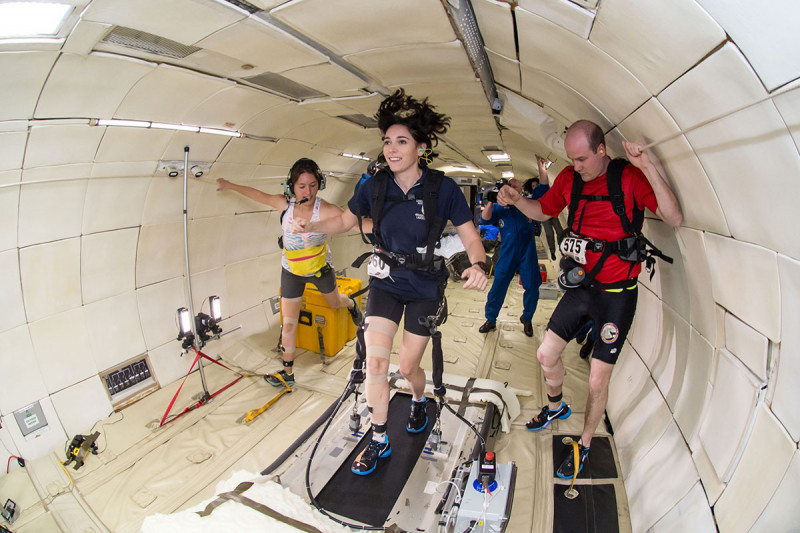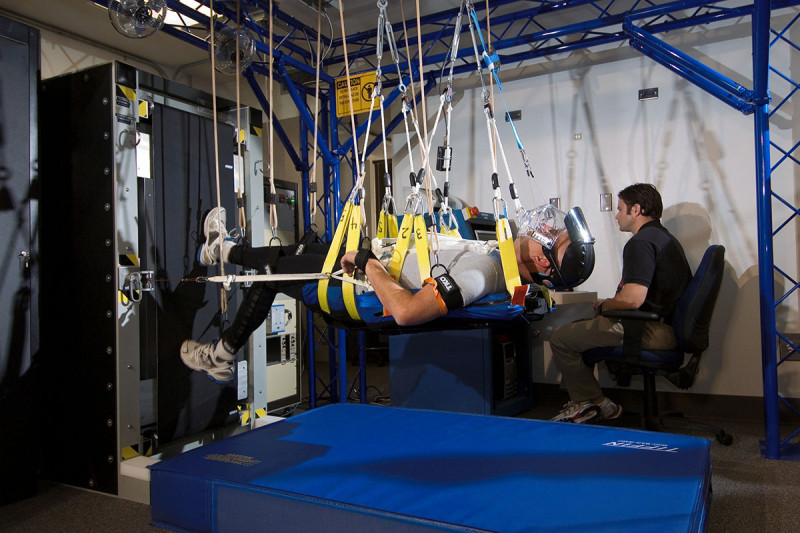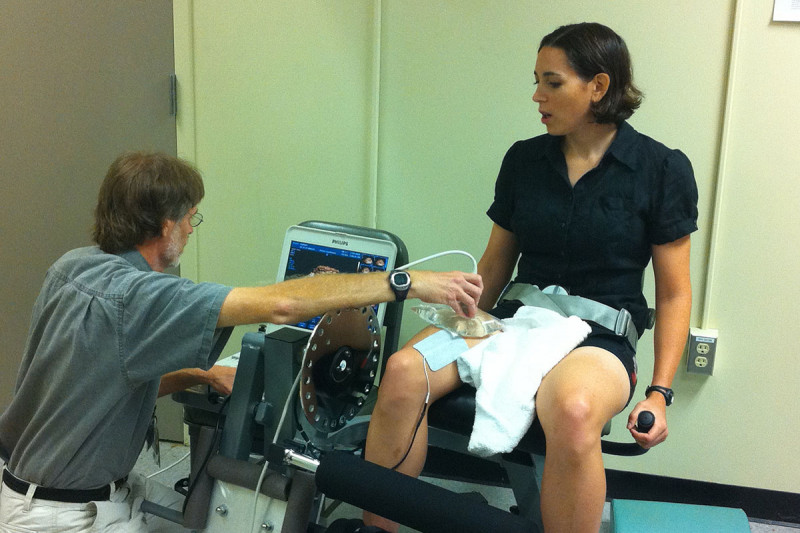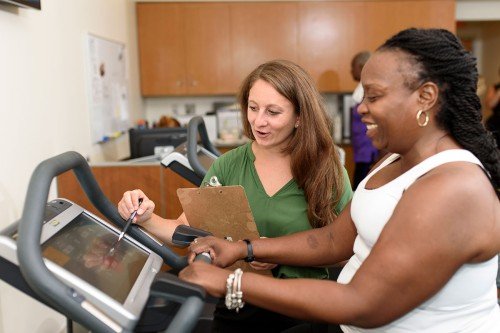Jessica Scott is an exercise physiology researcher on MSK’s Exercise Oncology Service, where she studies how physical activity can help reduce the side effects of cancer treatment. Previously, she was a researcher at NASA for seven years. This interview took place in February 2019.
In university, I was focused on getting into physiotherapy school and becoming a physical therapist. However, during my senior year, I took a research course that introduced me to the cardiovascular changes that occur during exercise. It was a very hands-on class: We conducted exercise tests and used tools like echocardiography to look at the heart. I also completed an internship in an exercise oncology laboratory and worked with a postdoctoral fellow named Lee Jones.
After graduating, I was fortunate to get into both physiotherapy school and graduate school, but because of that one research course and internship experience, I decided to pursue research. My master’s and PhD studies focused on the effects of exercise on the heart. For example, I studied what happens to the heart during a 100-mile running race, and how the hearts of patients who have had a transplant respond to exercise.
Taking Up Space
In 2010, I went to NASA Johnson Space Center for my postdoctoral fellowship. I studied how to keep astronauts healthy before, during, and after spaceflight. Since the 1960s, NASA researchers have known that spaceflight causes dramatic physiological changes. For an astronaut, there is no standing up or walking around in space, so spaceflight is like lying in bed for months. However, instead of testing or developing drugs to prevent toxicities, researchers decided to try exercise. It worked extremely well. For more than 50 years NASA has used exercise as the only mandatory countermeasure to prevent physiological changes in astronauts.
But the work wasn’t done. We conducted an extensive study and found that astronauts were still losing up to 20% of their heart and muscle function in space. We knew we needed to improve our exercise prescriptions and equipment to get closer to the goal of 0% loss of function. As a result, we completed a study testing a new exercise prescription that included higher-intensity aerobic and resistance exercise.
While I was at NASA, I kept in touch with Dr. Jones, and we collaborated on several research papers. In 2017, we joined forces again when I came to MSK.
Striking Similarities
Astronauts experience a lot of symptoms similar to what people with cancer experience, such as changes in muscle and heart physiology. They even get something called “space fog,” which is similar to what people with cancer call “chemo brain.”
In both groups, these changes are caused by what we call a “multiple hit.” The first hit is a baseline risk factor: A patient or astronaut may have a preexisting condition, such as hypertension. The second is a direct hit, which would be the chemotherapy itself or a reduction in gravity. The third is an indirect hit: People who don’t feel great as a result of the first two hits may not exercise as much. When you put multiple hits together, people having chemotherapy can physiologically age ten years in just six months — just like astronauts in space before exercise countermeasures were initiated.
Changing Career Paths
I loved what I was doing at NASA. We got to work on a lot of exciting projects, but we were devoting a lot of resources to keeping just six or seven astronauts healthy per year. Given the similar side effects between astronauts and people with cancer, it felt like there was a lot we could apply from NASA’s countermeasure program to protect the health of millions of people with cancer.
Dr. Jones is the main reason why I came to MSK. He is a world-renowned leader in exercise oncology and is really driving the field forward. He’s looking at new ways to use exercise to help prevent and treat cancer, as well as prevent the side effects from treatment. MSK is a leader in precision medicine, and that’s exactly what we are trying to apply to exercise — a type of precision medicine. There are incredible resources, doctors, and researchers at MSK, which make this place unlike anywhere else in the world.
Personalized Approach to Cancer Care
What drives me is learning how we can tailor exercise to each individual. There is a general thought that exercise works for everyone, but we’re still learning that exercise is definitely not one size fits all. We have many years of research ahead of us to try and understand how to best incorporate exercise to help people before, during, and after cancer treatment.







